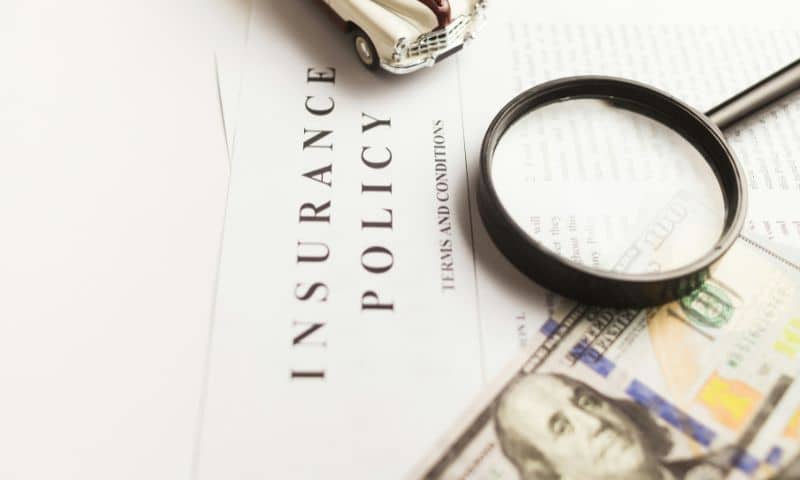
How to File a Third-Party Insurance Claim after a Car Accident
Getting into a car accident is stressful enough without having to worry about the insurance headaches afterward.
But to pursue rightful compensation, you may need to file a third-party claim with the at-fault party’s insurance company to recover the remaining medical costs, lost wages, and repair bills.
It’s a complicated process that requires jumping through hoops, from documenting every detail surrounding the collision to quantifying all your losses. Miss a single step, and you could potentially jeopardize your ability to receive the full compensation you’re owed under your policy.
Preparing to File a Third-Party Claim
If you find yourself in a situation where you need to file a third-party insurance claim, the first step is to gather as much evidence as possible. This might include:
- A police report (if applicable)
- Photos of the accident scene, damage, and injuries
- Witness statements
- Documentation of your medical treatment and expenses
- Cost estimates for repairing or replacing damaged property
- Records of any lost wages due to your injury
Having this documentation will not only strengthen your claim but also help ensure you’re compensated fairly for all the damages you’ve incurred.
Once you have your evidence in order, you’ll need to deal with the other party’s insurance company. This often involves speaking with an insurance adjuster, who will investigate the claim and determine how much (if anything) the company is willing to pay out.
The Claims Process for Third-Party Insurance
Initiating the Claim
To officially begin the third-party claims process, you’ll need to file a claim form with the at-fault party’s insurance company. This form will ask for details about the incident, the damages or injuries you sustained, and the compensation you’re seeking.
It’s important to be thorough and accurate when completing this form. Any omissions or inaccuracies could jeopardize your claim.
Negotiating a Settlement
Once your claim has been filed, the insurance adjuster will review the evidence and may make an initial settlement offer. This offer will likely be lower than what you asked for, as insurance companies often try to minimize their payouts.
At this point, you’ll need to decide whether to accept the offer or counter with a higher amount. If you choose to negotiate, be prepared to provide additional documentation and justification for the compensation you’re requesting.
Handling a Claim Denial
In some cases, the insurance company may deny your claim outright. This could be due to a lack of evidence, a dispute over who was at fault, or other reasons.
If your claim is denied, you may have the option to appeal the decision or file a lawsuit against the at-fault party. However, it’s important to act quickly, as there are legal deadlines, better known as statutes of limitations, for filing personal injury or property damage claims.
Statute of Limitations
Speaking of statutes of limitations, let’s talk a bit more about these important deadlines.
- In West Virginia, the statute of limitations for filing a personal injury claim is generally two years from the date of the injury.
- For property damage claims, the statute of limitations is typically two years from the date of the incident.
It’s crucial to be aware of these deadlines and file your personal injury claim within the appropriate time frame. If you miss the statute of limitations, you may lose your right to seek compensation altogether.
Third-Party Auto Insurance Claims
Many third-party insurance claims stem from car accidents, where you seek compensation from the at-fault driver’s auto insurance policy.
These cases usually involve the at-fault driver’s liability insurance coverage, which is usually divided into two main categories:
- Bodily injury liability: This covers injuries you or your passengers sustain in an accident caused by the insured driver.
- Property damage liability: This covers damage to your vehicle or other property resulting from an accident caused by the insured driver.
If the at-fault driver is uninsured or doesn’t have enough coverage to fully compensate you, you may need to file a claim under your own uninsured or underinsured motorist coverage.
Other common third-party car insurance claims include:
- Rental car claims: If you’re involved in an accident while driving a rental car, you may need to file a claim with the rental company’s insurance.
- Hit-and-run accidents: If you’re the victim of a hit-and-run, you can file an uninsured motorist claim with your own insurance company.
Third-Party Homeowners Insurance Claims
Car accidents aren’t the only situations that can lead to third-party insurance claims. Homeowners and renters insurance policies also provide liability coverage that can come into play.
For example, if you are injured due to a hazardous condition on someone’s property, like a loose stair tread or icy walkway, you may have grounds for a third-party liability claim against their homeowner’s insurance policy. This is known as a “slip and fall” or “premises liability” claim.
Dog bites are another common source of third-party homeowners insurance claims. In West Virginia, dog owners can be held strictly liable for any injuries their pets cause, even if the dog has never shown signs of aggression before.
Third-Party Business Insurance Claims
Businesses also carry insurance policies that can be the subject of third-party claims, most notably commercial general liability (CGL) insurance.
A CGL policy can provide coverage if a customer or other third party is injured on the business premises or by one of the company’s products or services. Common third-party claims against CGL policies include:
- Product liability claims: If a defective or dangerous product causes injury, the manufacturer or seller can be held liable.
- Professional liability claims: Doctors, lawyers, accountants, and other professionals can be sued for malpractice or negligence in the course of their work.
Preventing Future Third-Party Claims
The best way to avoid the hassle of third-party insurance claims is to take steps to prevent accidents and injuries from happening in the first place.
- For drivers, this means maintaining adequate auto insurance coverage (with higher policy limits if you can afford them) and practicing safe, defensive driving habits at all times.
- For homeowners, it’s important to regularly inspect your property for potential hazards and take prompt action to mitigate any risks.
- For businesses, this could involve anything from fixing loose handrails to implementing better safety protocols for employees and customers.
By being proactive and taking reasonable precautions, you can significantly reduce the likelihood of ending up on the receiving end of a third-party liability claim.
When to Hire a Personal Injury Lawyer
While it’s possible to handle a third-party insurance claim on your own, there are many benefits to hiring an experienced personal injury attorney from a reputable firm like Miley Legal.
For one, our attorneys are well-versed in the claims process and know how to negotiate effectively with insurance companies. They can help ensure you receive a fair settlement that accounts for all your damages, including future medical expenses and lost earning potential.
Additionally, we work on a contingency fee basis, meaning we only get paid if we recover compensation for you.
In general, it’s a good idea to at least consult with an attorney if:
- Your injuries are severe or likely to have long-term consequences
- The insurance company is disputing liability or offering an unreasonably low settlement
- Your claim involves complex legal issues or large sums of money
Ultimately, navigating third-party insurance claims can be complex and confusing. But with the right knowledge and legal support, you can protect your rights and ensure you’re fairly compensated for any harm or losses you’ve suffered.
If you find yourself in need of guidance or representation for a third-party claim in West Virginia, don’t hesitate to reach out to the experienced attorneys at Miley Legal for a free case review. We’re here to fight for you and make sure you get the justice you deserve.
Frequently Asked Questions
What is the statute of limitations for filing a third-party insurance claim in West Virginia?
The statute of limitations for filing a personal injury claim from a third-party insurance company in West Virginia is generally two years from the date of injury. For third-party property damage claims, the statute of limitations is typically two years from the date of the incident that caused the damage.
Can I file a third-party claim against a homeowner’s insurance policy in West Virginia?
Yes, you can file a third-party liability claim against a homeowner’s insurance policy in West Virginia if you were injured due to a hazardous condition on their property, such as a loose stair tread or icy walkway. This is known as a premises liability or slip-and-fall claim.
Do I need a lawyer to file a third-party insurance claim in West Virginia?
While you can file a third-party insurance claim without a lawyer in West Virginia, it’s generally advisable to at least consult an attorney, especially if your injuries are severe, the insurance company disputes liability, or your claim involves larger sums of money or complex legal issues.

